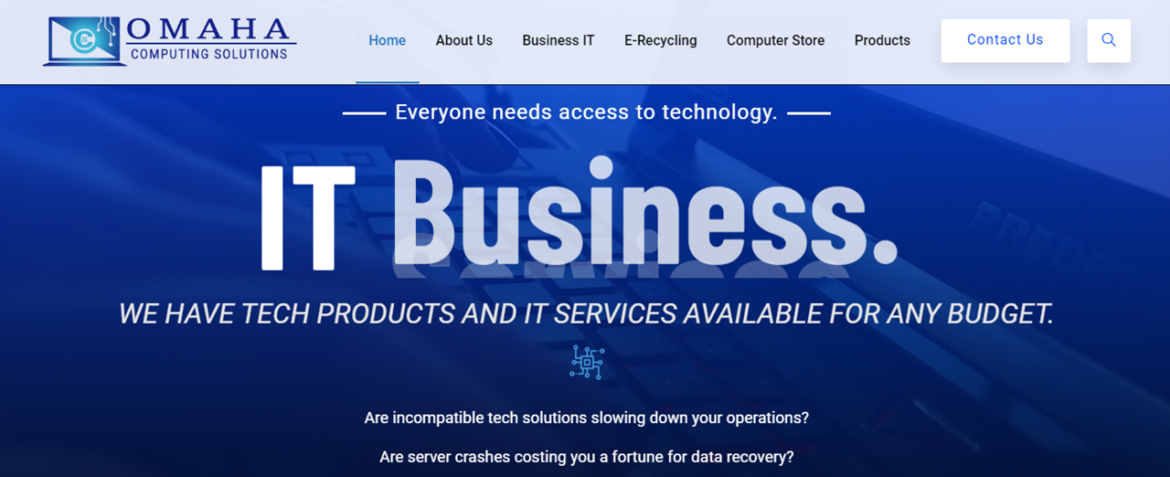As technology continues to advance, businesses frequently upgrade their electronic devices, resulting in a growing accumulation of electronic waste, or e-waste. Disposing of e-waste improperly poses environmental and health risks.
Fortunately, there are free e-waste recycling programs available for businesses, allowing them to responsibly dispose of their old electronics. This article aims to guide businesses on how to get started with free e-waste recycling and highlights the benefits of participating in such programs.
I. Understanding the Importance of E-Waste Recycling:
E-waste contains hazardous substances that can harm the environment and human health if not properly managed. By recycling old electronics, businesses can:
1. Prevent Environmental Pollution: Recycling e-waste reduces the risk of toxic materials contaminating the soil, water, and air. It helps conserve natural resources and protects ecosystems.
2. Promote Sustainable Practices: Electronic Recycling promotes a circular economy by recovering valuable resources and reducing the need for raw material extraction. This contributes to sustainable resource management.
II. Researching Local E-Waste Recycling Programs:
To start recycling your business’s e-waste for free, follow these steps:
1. Identify Local Recycling Facilities: Research local recycling centers or programs that offer free e-waste recycling services for businesses. Look for certified facilities that adhere to proper recycling practices and handle e-waste responsibly.
2. Check Municipal or County Programs: Many municipalities and counties organize e-waste collection events or provide drop-off locations for businesses. Check their websites or contact local authorities to inquire about available programs.
III. Organizing E-Waste Collection:
Once you have identified a suitable e-waste recycling program, follow these guidelines to organize your e-waste collection:
1. Determine Collection Points: Designate specific areas within your business premises where employees can deposit their old electronics. Ensure these collection points are easily accessible and clearly labeled.
2. Communicate the Recycling Initiative: Raise awareness among employees about the e-waste recycling program. Emphasize the importance of recycling and provide clear instructions on what types of electronics are accepted.
3. Establish Collection Schedule: Determine a regular schedule for e-waste collection to avoid accumulation and ensure a smooth recycling process. Consider conducting collection drives or events to encourage participation.
IV. Data Security and Privacy Considerations:
Before recycling your old electronics, it is essential to address data security and privacy concerns:
1. Secure Data Erasure: Ensure that all sensitive data is securely erased from devices before recycling. Use reliable data wiping software or seek professional assistance to guarantee the complete removal of confidential information.
2. Asset Management and Tracking: Maintain a detailed inventory of the electronics being recycled, including serial numbers or asset tags. This tracking system helps ensure data privacy and provides accountability during the recycling process.
V. Benefits of Participating in E-Waste Recycling Programs:
Engaging in free e-waste recycling programs offers several advantages to businesses, including:
1. Environmental Responsibility: By recycling e-waste, businesses demonstrate their commitment to environmental sustainability and responsible waste management.
2. Compliance with Regulations: Recycling e-waste helps businesses comply with local and international regulations governing the disposal of electronic devices.
3. Positive Public Image: Participating in recycling programs can enhance a business’s reputation and build trust among environmentally conscious customers and stakeholders.
Conclusion:
Participating in free e-waste recycling programs allows businesses to dispose of their old electronics responsibly while contributing to environmental preservation and resource conservation. By researching local recycling programs, organizing e-waste collection, addressing data security concerns, and recognizing the benefits of recycling, businesses can take a proactive step towards a more sustainable future. Embrace the opportunity to make a positive impact by recycling your e-waste and inspiring others to follow suit.


